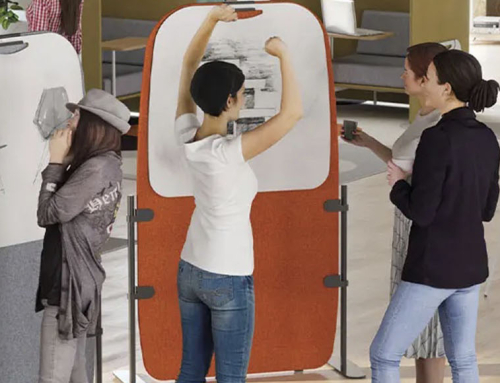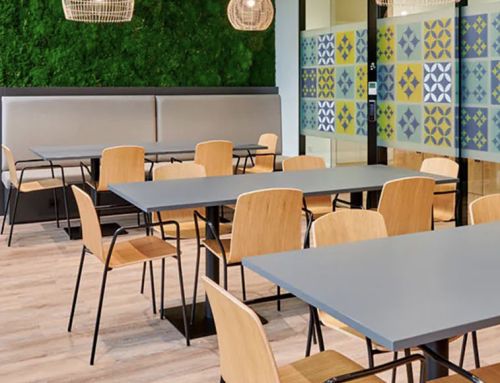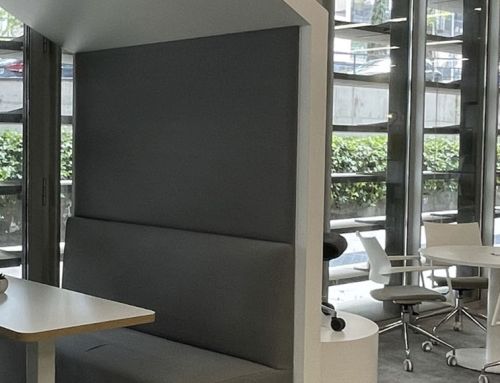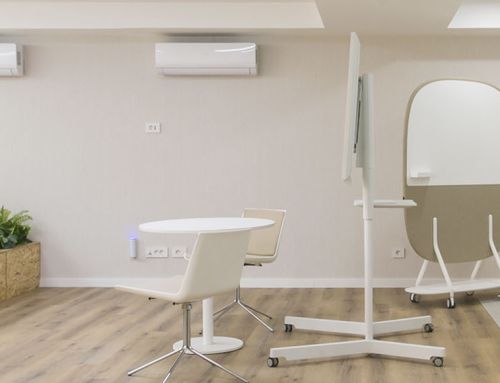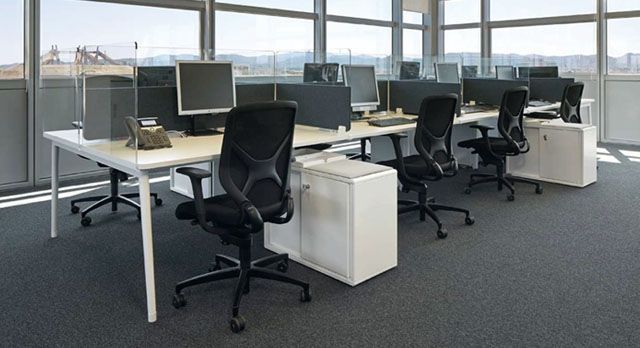
New offices after Covid19 – how will the new work spaces be?
Eighty six percent of employees support the installation
of protective panels at offices
Without doubt Covid19 will involve considerable changes in the design of offices. Firstly we will have to be sure that we work in offices ready to avoid the transmission of pathogens of the future and where the safety of employees comes first.
Companies are already reformulating the design of their work spaces, both individual and collective with respect to aspects such as distance between employees, routes, size con common areas…to guarantee the safe return to work centres and respond to the concerns of employees.
In this sense, over 86% of office employees asked by Ofita support the idea of installing protective panels at their work stations. “Great companies, banks, insurance companies….with branches all around the country are demanding these panels as a protection both for the employee-client relation and in their headquarters for the staff” declares Martín López, Ofita’s Commercial Director.
These transparent screens offer individual isolation for each person both lateral and frontal. “They allow natural light to pass and communication between colleagues, they are very easy to mount and clean”, he explains.
But also we will see changes in the design of work spaces which are more related to the perception we have of offices and new work methodologies according to Ofita, office furniture manufacturer.
Non-territorial offices
Firstly after to the return to normal, we expect an increase of telework “more companies will encourage employees to work from home some days and at specific times. Therefore there will be less work stations at the office and there will be non-territorial, which means that they will not be assigned to a specific person”. The task of the office will be more social, a meeting place to share experiences and knowledge”.
According to Ofita’s analysis, after this period of isolation we miss socializing at the office. At present, collaborative areas represent 65% of our offices and for over 80% “it is essential” to preserve these spaces at headquarters.
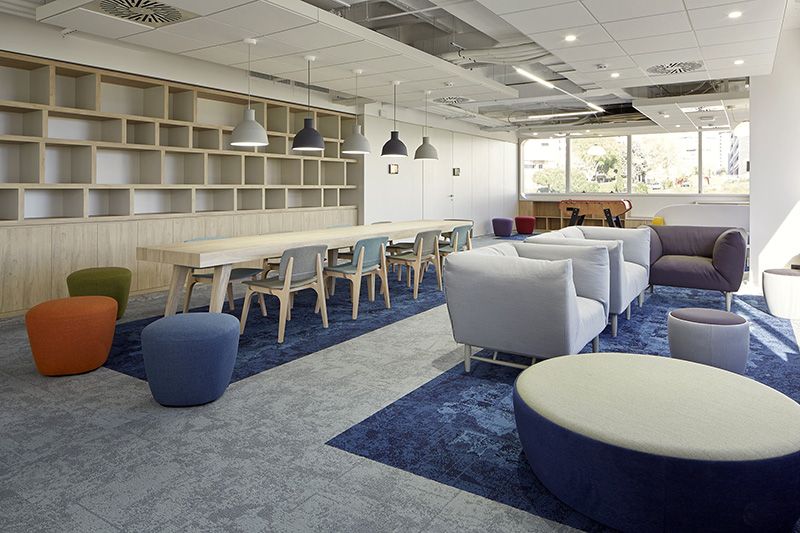
In the opinion of Ofita’s commercial director “after confinement we will be saturated of online meetings and will need to relate between us and in physical spaces that warmly welcome us”. In this sense, he recalls that collaborative spaces encourage more participative cultures and ease innovation and creation processes. Moreover “for 78% of the employees surveyed the feeling of belonging to an organization when they work in an office is greater that when they do it from home”.
New offices after Covid19, a hybrid eco-system
New offices after Covid19 will be according to Ofita, a hybrid eco-system between private and collaborative spaces. “Open plan offices were already in decline before the coronavirus, ever more frequently we are moving on to the creation of office spaces that allow a balance between isolated concentration and productive and social collaboration”. “And such an intense experience with telework will reinforce this trend” according to Martín López. “Working at home we have learnt to enjoy the most personal and private moments and spaces that will provide better concentration and at the same time we miss the relationship with our colleagues and collaborators. Therefore, our work dynamics will be more flexible, the famous “work were you want” and the offices will be mixed, open work areas coexisting with more or less closed spaces such as cabins…”
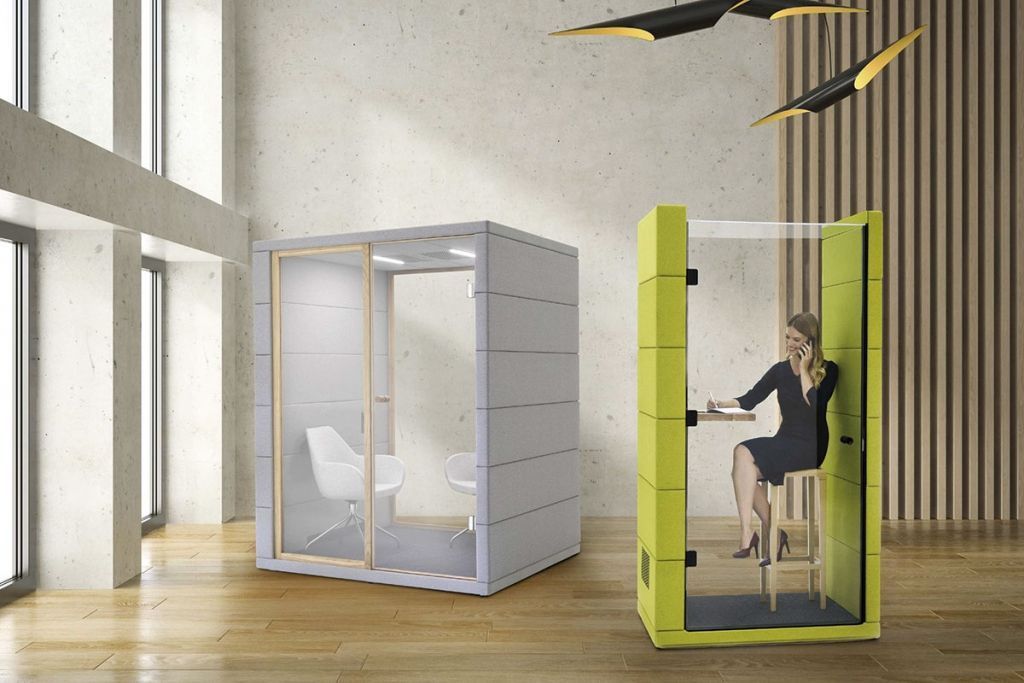
Microoffice
There are plenty advantages of the open office: it favours debate and team work, it eases flexible work, saves costs and humanizes the work space as it makes it more social. But it also presents disadvantages; the noise, constant distractions that hamper concentrated work and lack of privacy to hold telephone conversations or meetings. In fact, 70% of people are not satisfied with its work environment especially because they cannot concentrate.
“Counting with different environments helps workers choose the most appropriate space and even the state of mind, which adds a personal touch to the privacy experience” says Ofita’s Commercial Director.
Privacy spaces can be more or less closed, opaque or glazed and privacy can be an individual or team experience. “Important thing is that these spaces offer the possibility of concentrating on the activity we are developing and with the privacy and security we require”.
